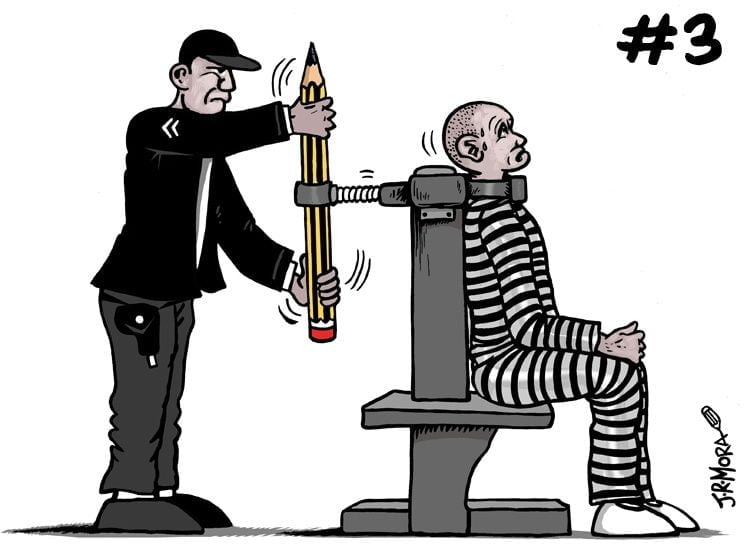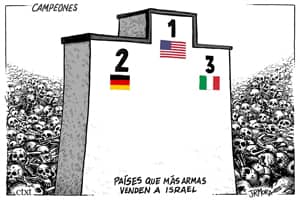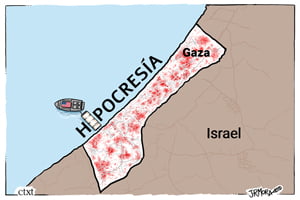
Palestinian cartoon Mahmoud Abbas published on 20 April for which he received insults and death threats.
Transcript of the statement from Euro-Med HRM.
"Euro-Mediterranean Human Rights Monitor joins the European Federation of Journalists (EFJ) and its Swedish affiliate, Journalistförbundet (SJF), in strongly condemning the online smear campaign directed at cartoonist Mahmoud Abbas since 21 April 2020, following the publication of his cartoon.
Palestinian-born cartoonist Mahmoud Abbas lives in Sweden. On 20 April 2020, his cartoon about the fall in international oil prices went viral on Twitter in Saudi Arabia. It shows a person in an Arabian Gulf dress with a rolling barrel of oil behind him. The character was identified by the public as Crown Prince Mohammed Bin Salman and the cartoon interpreted as 'mocking the Gulf'.
Since 21 April, Mahmoud Abbas has received thousands of tweets and comments on social media, including insults, hate speech and death threats against him and his family. Some referred to him as a 'terrorist'. Personal information about his family and his location in Sweden was also shared.
A complaint was filed with the Swedish police with the help of SJF and the case was sent to the Mapping Media Freedom platforms and the Council of Europe.
EFJ General Secretary Ricardo Gutierrez said: "We stand in solidarity with Mahmoud Abbas. We are appalled by the violence of the threats and insults. Cartoonists have become a prime target of autocratic regimes. They need protection.
SJF president Ulrika Hyllert said: "The attack on Mahmoud Abbas is unacceptable. An attack like this is not only an attack on Mahmoud Abbas as a person, but also a threat to press freedom. We demand that the police investigate the case thoroughly and do everything possible to ensure the safety of Mahmoud Abbas".
The cartoonist insists he was not referring to Saudi Arabia
"The purpose of the cartoon was to show the oil crisis and its impact on the Arab world and the Middle East region, as it relies heavily on oil as a main source of income,' Abbas told Middle East Eye. The cartoonist again clarifies that his cartoon was not only about Saudi Arabia.
"I wasn't referring to Saudi Arabia in particular, especially since it was Saudi Arabia that decided to reduce the price of oil of its own volition. I'm surprised that it's only the Saudis who have launched attacks on me".
This is a rather ridiculous case, although almost all of them tend to be. In most complaints, denunciations and fuss over cartoons, there is some more or less concrete cause, whether it be for alleged insults, religious offences or moves on account of symbols and all that. In this case, the angry reactions come from those who see a mockery of an entire country in a cartoon so white, obvious and innocent that it is hard not to laugh at those offended.
Related, more than 140 cases in different countries.
Humour in trouble, a collection of cases (III)
Cases of cartoonists who have had problems of some importance because of their cartoons or satirical illustrations. There are also some stories of other people who, without being cartoonists, have got into trouble for sharing them.








